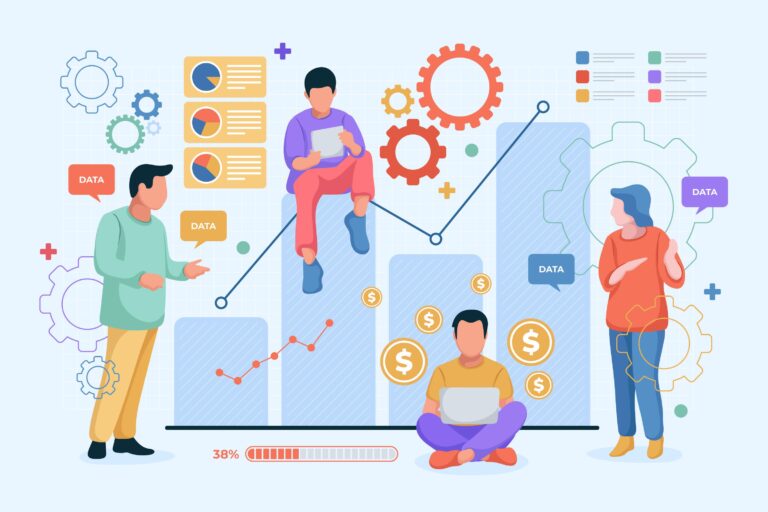Political Economy | The Political Economy of Elections, Immigration, and Rent-Seeking: Key Insights and Impacts
Introduction
Political economy examines the interaction between political institutions, behavior, and economic outcomes. This blog explores important political economy topics, such as elections, political ideology, institutions and economic policy, the causes and consequences of immigration, the link between terrorism and public attitudes, and the role of rent-seeking and other economic contests. Understanding these interactions is key to shaping informed policies that impact governance and economic development.

Elections, Political Ideology, Institutions, and Economic Policy
Elections and political ideology play crucial roles in shaping institutions and economic policies. Voters’ preferences and the ideologies of political parties influence the types of economic policies that are implemented, including taxation, welfare programs, and regulatory frameworks. For example, left-leaning parties tend to advocate for policies aimed at reducing income inequality through progressive taxation and social safety nets, while right-leaning parties often prioritize market efficiency and limited government intervention.
Institutions, such as electoral systems, legal frameworks, and political structures, determine how power is distributed and how policies are enforced. Strong institutions that promote accountability, transparency, and rule of law are vital for fostering economic growth and stability. Conversely, weak institutions can lead to corruption, policy uncertainty, and economic stagnation.
Immigration: Causes and Consequences
Immigration is driven by various factors, including economic opportunities, political instability, and social unrest. The economic impact of immigration is a widely debated topic in political economy. On the one hand, immigrants contribute to labor markets by filling skill gaps, boosting productivity, and supporting industries like agriculture, construction, and technology. On the other hand, concerns about competition for jobs, pressure on public services, and social integration challenges often fuel public debate.
Immigration policies can significantly shape a country’s demographic and economic trajectory. Countries that embrace immigration often benefit from increased diversity, innovation, and economic dynamism. However, poorly managed immigration policies can exacerbate social tensions and strain public resources, particularly if there is inadequate investment in integration efforts.
Terrorism, Public Attitudes, and Behavioral Outcomes
Terrorism has profound effects on public attitudes, behaviors, and policy decisions. The fear and uncertainty generated by terrorist attacks often lead to shifts in public opinion regarding security measures, civil liberties, and immigration policies. In the aftermath of terrorism, governments may adopt stricter security laws, increase surveillance, and impose travel restrictions, impacting not only national security but also international relations and economic activities.
Behavioral outcomes following terrorist incidents can also include changes in consumer behavior, reduced tourism, and altered investment patterns. Political economy studies seek to understand the long-term effects of terrorism on society, such as shifts in voting behavior, polarization, and the erosion of trust in institutions.
Rent-Seeking and Other Contests: The Cost of Unproductive Competition
Rent-seeking occurs when individuals or groups attempt to gain wealth without creating new value, often through lobbying, bribery, or political manipulation. Rent-seeking behavior can distort economic efficiency, lead to misallocation of resources, and increase income inequality. It often manifests in industries where regulations, subsidies, or government contracts are involved, allowing well-connected firms to secure favorable treatment at the expense of broader societal welfare.
Rent-seeking contests are detrimental to economic growth as they divert resources from productive activities toward unproductive competition for existing wealth. These contests can lead to corruption, reduce innovation, and create barriers to entry for new businesses. Policies aimed at reducing rent-seeking, such as transparency measures and anti-corruption laws, are essential for promoting a more efficient and equitable economy.
Conclusion: Shaping Policies for a Better Future
Political economy offers critical insights into how political and economic systems interact, shaping everything from elections to immigration, terrorism, and rent-seeking behavior. By understanding these complex dynamics, policymakers can design interventions that promote economic growth, enhance social welfare, and ensure political stability. As global challenges evolve, political economy will continue to be a vital tool for navigating the intricate relationship between politics and economics.
References
- Acemoglu, D., & Robinson, J. A. (2012). “Why Nations Fail: The Origins of Power, Prosperity, and Poverty.” Crown Business. Available at: Why Nations Fail
- Borjas, G. J. (2016). “Immigration Economics.” Harvard University Press. Available at: Immigration Economics
- Krueger, A. B. (2007). “What Makes a Terrorist: Economics and the Roots of Terrorism.” Princeton University Press. Available at: What Makes a Terrorist
- Tullock, G. (1967). “The Welfare Costs of Tariffs, Monopolies, and Theft.” Western Economic Journal, 5(3), 224-232. Available at: The Welfare Costs of Rent-Seeking
- Persson, T., & Tabellini, G. (2003). “The Economic Effects of Constitutions.” MIT Press. Available at: Economic Effects of Constitutions






